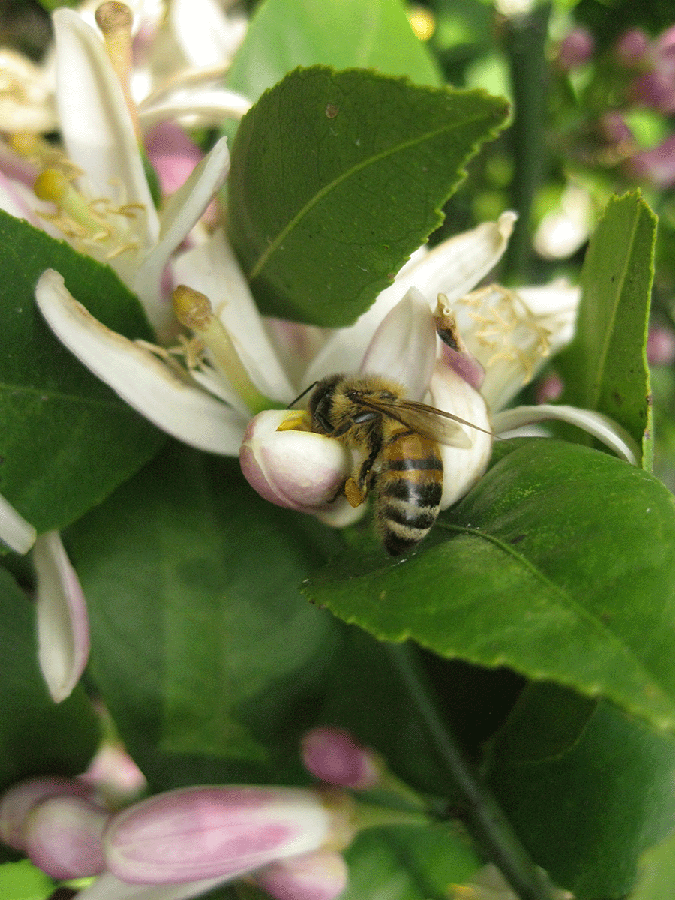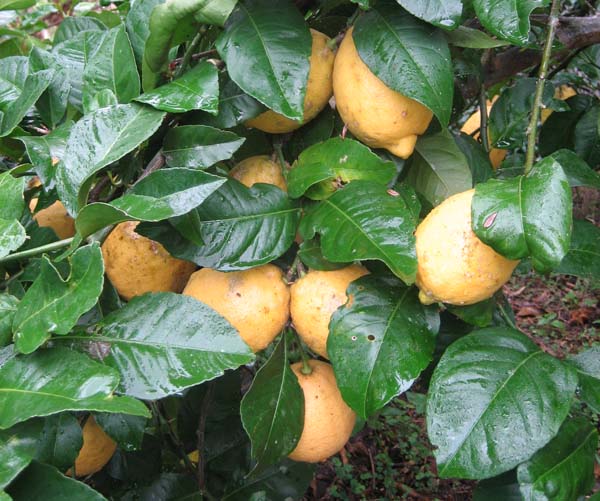Summer citrus care – give your citrus some new year cheer
I was fortunate to get a good harvest from my citrus this year. I had so many lemons I was able to preserve them, add them to barley water to make refreshing drinks and of course, the odd slice or two added to a Bombay Sapphire never went astray. So to ensure the same success next year, it’s time for me to show some gratitude and put some energy back into my trees.
I start my summer care routine by weeding out anything that has managed to get going under the trees and raking back the old mulch. Applying a small quantity of organic fertiliser is usually next but it has to go on a moist soil, which is just not happening by itself this year. Usually by now the wet season rain would have begun but we are having an incredibly dry summer. So I will be giving my trees a good, deep soaking to just past the drip-line of the tree because this is where the main feeding roots are located. I need to give the trees a deep watering anyway or risk losing this year’s crop. Citrus trees require consistent watering. If allowed to dry out during summer they usually drop their flowers and fruit or the fruits’ skin hardens and when it does finally rain, the skin will split.
If you don’t have the water available, just hold off on fertilising rather than risk burning the roots. I have learnt the hard way, having lost several camellias that were fertilised and not given enough or consistent watering afterwards. So unless you are lucky enough to be on town water or have a ready supply of water that you can give your citrus after fertilising, then wait until the temperatures cool down and rain is forecast.
Citrus are regarded as very hungry feeders for both macro and micro nutrients. If your fruit was small or just not very sweet last year, the problem was probably poor nutrition. The trick with fertilising citrus trees is to try and time the fertiliser applications to match growth spurts. It also helps to apply ‘little and often’. This not only reduces the risk of burning the shallow roots but also reduces the loss of nutrients in run-off if we do get heavy rain. Over-feeding a tree with nitrogen is known to attract aphids.
Aim to apply fertiliser around four times a year; once in spring, summer, autumn and winter works for me. So this time I’m applying 1kg cow manure, 1kg compost and 150g of complete organic fertiliser for each year of the tree’s age, so my four year old lemon will get 4kg cow manure, 4kg compost and 600g of complete organic fertiliser. By the time a tree reaches 10 years of age it will be receiving the maximum application possible. Keep in mind that these quantities are only 25% of the annual requirement. I wasn’t kidding when I said they are very hungry feeders!
Put the old mulch back on top, add a layer of wet newspaper, at least 10 sheets thick, then top with fresh mulch. Make sure the mulch is well clear of the trunk, to avoid the fungal condition: collar-rot.
Do a pest check for borer damage which is always worse in dry weather. Borer holes will be oozing sap or sawdust and leaves will have wilted. Try gently bending the affected branch, as where it bends will indicate how far the borer has tunnelled. Then cut it off across this point and check for the borer inside the branch. I usually carry a piece of coathanger wire to poke down borer holes. There is no point in leaving them to complete their life cycle and lay more eggs on my trees.
When you love your citrus like I do, all this wonderful attention is really worth it. I know I’ll be flush with lemons next winter – can’t wait!
Tags: fruit, lemons, maintenance
Posted in Organic Gardening





Hey, hope you can help with a problem which has occurred on my meyer lemons for the past 2 seasons. When the fruit is looking almost good enough to pick, but not quite yellow enough, the skin tends to turn a rusty looking colour and though the fruit is juicy inside, the skin is inedible and unsightly. What do you think?
A pest, Red Scale, can give the fruit a reddish skin. It tends to come off on your hands if you are juicing the lemons. Have a close look and see if it looks like scale. If it does organic solutions can be found here http://greenharvest.com.au/PestControlOrganic/Information/ScaleControl.html